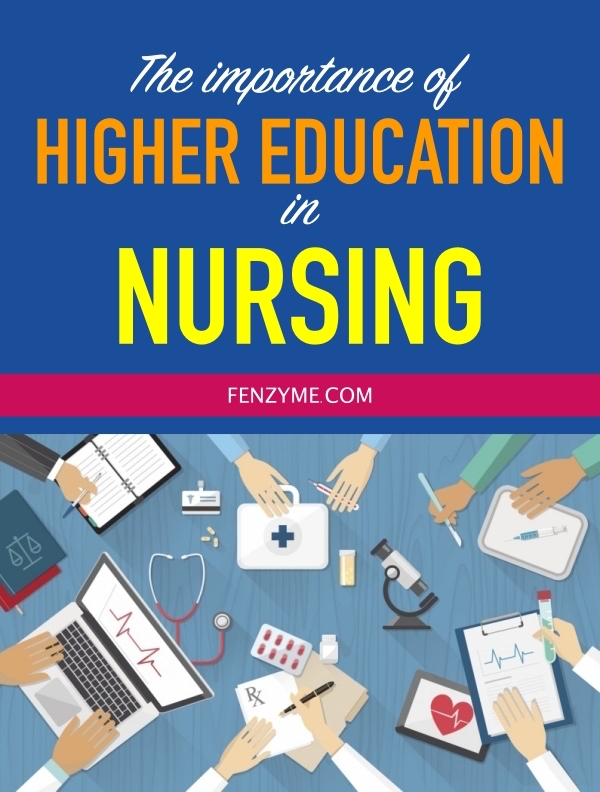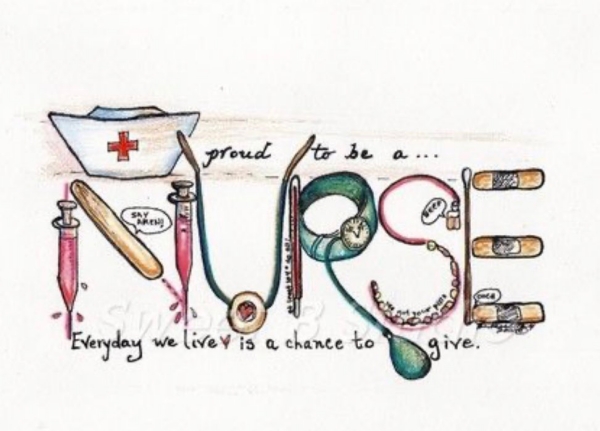The Importance of Higher Education in Nursing
There are lots of reasons why classroom learning is a lifelong pursuit, and this applies greatly to nursing. No matter how far you progress in your career, there’s always more to learn, and this is one of the reasons why this rewarding profession is so popular.

However, the benefits of studying for a further degree in nursing aren’t just personal; they have huge implications for the healthcare system as a whole. We all know nurses are an important cog in the system, but many people fail to recognize just how deep their influence runs. When we have more nurses with further degrees such as being a nurse for post anesthesia and many more, this means the benefits are felt in many corners of the healthcare system.
It’s About More than Patient Care
Nursing is there to ensure patients get the best possible care but to ensure this happens, nurses need to have skills that go far beyond patient care. The last sentence might seem like an oxymoron, but if we’re going to give the best possible care, then nurses need to possess a wide variety of complex skills.

The system needs nurses who can inform the decision-making process and help design the framework of the healthcare system as well. Leadership skills and business acumen play greatly into this ability, adding to the already formidable list of skills a nurse must possess.
Mastering all of the necessary skills takes time and committed learning, and so it’s vital that we’re offering the right higher education courses. There are all kinds of different roles within nursing, and courses such as DNP executive leadership online programs play an important role.
Healthcare Needs are Becoming More Complex
Providing healthcare to a growing, aging population creates a lot of challenges, and nurses need to be trained to meet the future demands of the job.
As a large chunk of our population approaches retirement age, the pressures on the system are only going to get greater. With people living longer, they naturally reach an age where they’re going to need more frequent medical interventions and the complexity of their care increases.

Again, the challenges for nurses aren’t just limited to caregiving on an individual basis. If we’re to come up with answers to the major questions that are facing the healthcare industry, then we’re going to need the input of highly trained nurses to drive the changes the system needs.
While many of these skills are honed in the workplace, there’s also a large amount of academic study that’s required.
Patient Advocates
A growing and aging population undoubtedly puts extra pressure on resources, requiring us to come up with innovative solutions. However, any changes to healthcare practices mustn’t have a negative effect on the quality of patient care. To ensure this, we must have nurses who are capable of being strong patient advocates.

Of course, nurses are natural advocates for their patients’ care; however, within such a huge, complex system, you need people with the right set of skills to affect change on a large scale. Without these strong voices in leadership positions, we risk losing a vital voice in the push for improved patient care.
Again, these are skills that require a mix of experiences, and higher-education will certainly play a big part in this. With the variety of available nursing degrees, each person can pursue the career path that most suits their skills.
The “Basics” Aren’t So Basic
The basic skills we expect nurses to possess aren’t so basic; they’re a complex combination of expertise from a variety of different studies. To master these skills, it takes hard work and study, and that’s just to develop what people call the basics.
It’s natural to demand high standards from nurses because they’re dealing with people’s lives, but we’ve got to give them the skills to do the job, and this means an education of the highest quality. This continues to be the case throughout a nurse’s career, with them needing to develop new skills as they progress and take on new roles.

Some of these skills are learned in a professional setting, but many of them are learned in the classroom, which is why higher education plays such an important role in nursing.
Taking Care to People’s Homes
The world is set to have around 1.4 billion senior citizens by 2030. This means there are going to be a great deal of people living with chronic illnesses and physical disabilities developed over a lifetime.
With limited space in hospitals and doctor’s practices, it’s not feasible for these people to come into the hospital for basic regular treatments. It’s also a great burden for these people to try and get to hospital regularly for something they could have done at home.

This is one of the main reasons that home care is set to be a big trend in future healthcare systems. The homecare industry is already worth around $2 billion, and this number is only set to grow. However, to pivot towards a more homecare-based healthcare system, we need nurses with the skills to carry it out. This is just adding to the long list of skills we already require from our nurses, and it’s something that can be perfected and taught through further education.
Link Between Further Education and Better Patient Outcomes
Studies have found there is a direct link between the level of education in nurses and better patient outcomes. The study found that for every 10% increase in nurses with degrees, there was a 7% reduction in death rates.

A 7% reduction in the death rate is a huge number and applied across every hospital in the country; it can make a massive difference. This evidence that points to an improvement in one of the most basic goals of the healthcare system: keeping people alive, should be enough reason alone to champion further education in nursing.
However, this is just the tips of the iceberg, and there is a myriad of reasons why we should be investing in our nurses’ education.






